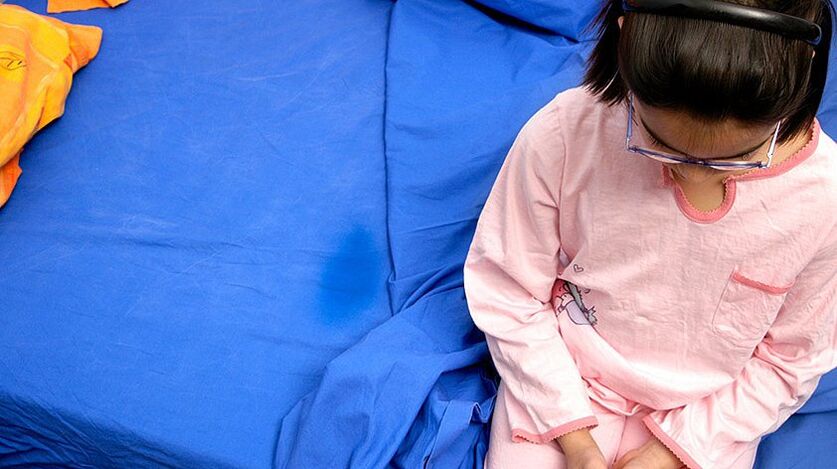
The diagnosis of Enuresis is made by adults and children over 5 years old, if they more often than two times a month are faced with the problem of involuntary urination. This disease in children often occurs independently and does not affect their health. But enuresis seriously affects the child’s self -esteem and his relationship with parents and peers, so they recommend treating urine incontinence since 6–7 years old.
What is enuresis
Enuresis is the repeated episodes of urinary incontinence, which occur at least twice a month for 3 months or more. Most often, involuntary urination occurs at night. The study of this problem has been engaged in doctors since the time of the ancient Persian scientist Avicenna, and for the first time the term "enuresis" was introduced into medical practice at the end of the 18th century. Since then, it was possible to find quite effective methods of treating the disease, but the mechanism of its occurrence has not yet been fully studied.
Most often, children suffer from an enuree, and by adolescence, in most cases, the disease passes on its own.
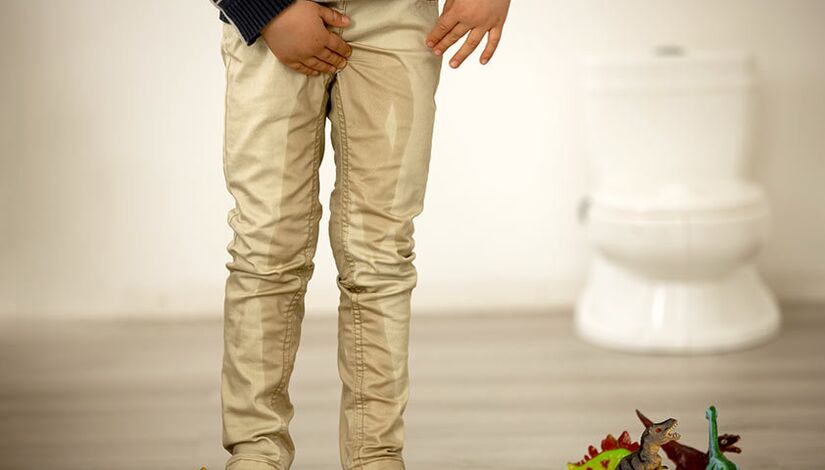
In boys, enuresis is more common than girls
Experts recommend not ignoring this delicate problem even at a young age, because due to incontinence of urine, the child can develop diseases of the genitourinary system and psychological problems arise.
Studies have shown that in children with an enuresis in 70% of cases, the level of anxiety has been increased, they have difficulty communicating with peers and encounter conflicts in the family because of their problem, which they cannot control. The New Zealand judicial psychiatrist, John Makdonald, even included enuresis, along with zoosadism (brutal handling of animals) and Piruinia (passion for arson), in the "behavioral triad", which indicates a predisposition to committing cruel crimes. The formation of personality is not influenced by the episodes of Enorez, but a trauma associated with mockery and punishments from parents, friends, brothers and sisters.
At 5 years old, enuresis occurs in 15–20%of children, at 7 years old - in 12%, and in 10 - in 5%. The disease is also detected in 1-2% of adolescents and 0. 5–1% of adults.
In adults, enuresis usually develops after 45 years, women suffer from them three times more often than men. At this age, episodes of enuresis are usually symptoms of diseases of the nervous and genitourinary system - and spontaneous cure, as in children, does not occur.
Causes of Enorez
Normally, the urination process occurs as follows. Urine through the ureters moves from the kidneys to the bladder, but does not go out: it is held by the muscle ring (sphincter), located in the place of the urethra compound with the bladder. Gradually accumulating, it presses on the walls of the bubble and annoys the receptors that transmit a signal about the need to urinate to the centers of the brain of the brain. The brain sends back a signal that you can relax the sphincter of the urethra. Normally, with persistent calls to urination during sleep, a person wakes up and can deliberately endure for some time.
In children under 4 years of age, the centers of control over urination in the brain are not finally formed, so they cannot always control this process. "Wet nights" up to 4–5 years are not considered a deviation from the norm. But after 5 years, Enuresis indicates a malfunction at any of the stages of urination.
Causes of enuresis in children:
- The slow development of urination centers in the brain and other disorders of the central nervous system (central nervous system). Most often, this is an individual feature of the body and as the central nervous system develops, the Enorez problem goes on its own. The risk of developing the disease for this reason is higher in children who experienced oxygen starvation (even insignificant) during pregnancy and childbirth-due to the mother-of toxicosis, entering the umbilical cord, improper presentation, etc. ;
- Polyuria is excessive urine secretion. It may occur due to the fact that the child drinks a lot of fluids at night or due to hormonal disorders. These include diabetes mellitus, excessive activity of parathyroid glands (hyperparathyroidism), reduced production of a vasopressin hormone, which helps regulate the tone of the muscles of internal organs and control the volume of urine. At night, it is usually synthesized more actively, so urine forms less;
- Diseases of the genitourinary system. Inflammation of the urethra and bladder, neoplasms, narrowing of the urethral canal, for example, due to the growth of connective tissue, can also lead to enuresis;
- stress. Loss of a relative, moving, going to kindergarten often cause a night incontinence of urine;
- A strong dream, because of which children do not wake up with urination.
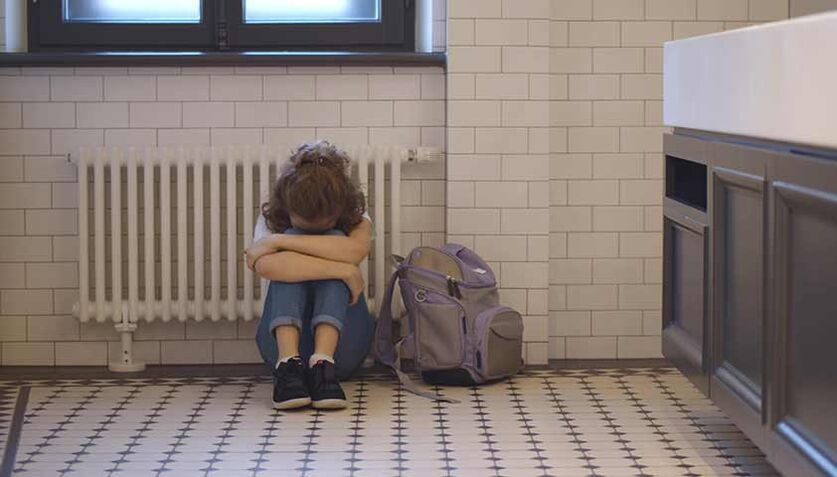
Due to Enorez, the child often becomes the object of ridicule. This greatly reduces self -esteem and leads to psychological problems
Causes of enuresis in adolescents and adults:
- Hormonal disorders: diabetes, hyperparathyroidism, reduction in vasopressin;
- Inflammatory diseases of the genitourinary system: pyelonephritis, urethritis, cystitis, prostatitis, orchitis (egg inflammation);
- regular abuse of alcohol;
- trauma of the spine, spinal cord;
- congenital anatomical abnormalities (for example, too small bladder) or weakening of the pelvic floor muscles;
- stress.
Most often, enuresis develops under the influence of several factors at once, and in some cases it is not possible to accurately distinguish the main cause of incontinence at all.
Enorez classification
Enuresis is divided into primary, when the problem was identified for the first time and periods of complete control over urination, and secondary, which was preceded by a controlled "dry" period for a long time for six months or more.
In the clinical recommendations of the Ministry of Health of our country, the disease is defined as a night incontinence of urine that occurs during sleep. But in medical practice, it is sometimes divided into night, day and mixed. The complicated and uncomplicated enuresis is also distinguished: in the first case, the syndrome is not associated with other diseases, in the second it is associated with pathologies of the central nervous system, infections and other problems with the urinary system.
Symptoms of Enorez
The main sign of enuresis is the inability to control urination during night sleep. Less often - during the day. Unusual emptying of the bladder can not occur every night, but regularly. The diagnosis of Enuresis is made if this happens two or more times a month for 3 months.
With an enuree, a person can urinate more often during the day, face involuntary urinary leakage, experience false urination or, conversely, to feel that after visiting the toilet, the bladder is not completely exhausted.
Children and adolescents with enuresis can become more closed and irritable, to sleep worse at night, they reduce performance at school.
Which doctor treats enuresis
Enuresis cause a variety of reasons, therefore, a large number of specialists are engaged in its diagnosis and treatment. Adult patients are recommended to contact the therapist and urologist. If the child’s enuresis, it is necessary to come to the reception to the pediatrician who will conduct an inspection and recommend narrow specialists. This can be a urologist, gynecologist, nephrologist, neurologist, psychotherapist, endocrinologist. General practitioners and narrow specialists collect a family history, listen to the patient’s complaints, and examine. The diagnosis of Enuresis is usually made on the basis of a clinical picture, and tests and instrumental studies are prescribed to clarify the causes.
Laboratory diagnostics of Enorez
To evaluate the general condition of the body and identify inflammation of the genitourinary system is helped by a general urine analysis and urine analysis by Nechiporenko.
In some cases, an analysis is prescribed to determine the level of vasopressin (antidiuretic hormone). It controls the water level in the body and affects the intensity of urination.
Instrumental diagnosis of enuresis
With an enuree, the doctor may prescribe an ultrasound of the bladder. This study can be replaced with magnetic resonance or computed tomography of the bladder and other urinary system organs.
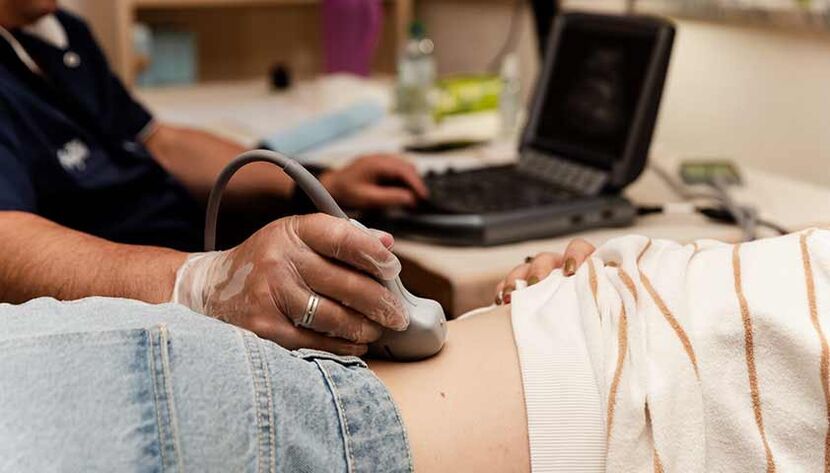
Ultrasound helps to evaluate the work of the bladder and find out how much urine remains in it after urination
If the results of ultrasound are not enough to determine the cause of enuresis and prescribe treatment, the patient is directed to a cystographic examination. For this procedure, a catheter is introduced into the bladder and fill the organ with a contrasting drug or oxygen, after which they take pictures of filled and emptied bladder.
Assess the speed and volume of urine flow during urination allows the uroflowetry method. During the study, the patient urinates into the funnel-receiver of the Urofloumeter apparatus. With this study, you can get information about the rate of urine flow and fluid volume, select indicators (markers) of deviations from the norm. These data are entered in the operating system related to the sensor, processed, and the results are displayed on the computer monitor in graphic form. The doctor deciphers the results.
If the patient in the past had injuries or the doctor suspects anomalies of the structure of the lumbosacral department, which can also provoke enuresis, can prescribe an X-ray of this spine.
In children and adolescents, enuresis most often develops not due to injuries or infections, but because of the belated development of the central nervous system and stress. In this case, they are recommended by examination by a neurologist and psychotherapist.
Enorez treatment
In adults and adolescents, enuresis is most often a symptom of infection, endocrine disease or injury. Therefore, first of all, it is necessary to identify this pathology as early as possible and begin its treatment.
Enures in children is treated by correction of behavior (motivational therapy), drugs, physiotherapy, psychotherapy or combinations of these methods.
Drug treatment
If the main cause of enuresis is violations of the nervous system, drugs that help normalize its work can be prescribed to the child. These are group B vitamins, nootropic drugs, glutamic acid, glycine. Antidiuretic drugs are also prescribed and in some cases tricyclic antidepressants. But the latter are used less often, since they have a more pronounced side effect.
Separately or as part of complex therapy, drugs are prescribed that normalize the work of the muscle shell of the bladder - Detruzor. If enuresis is associated with an infectious disease, they may prescribe a course of antibiotics.
Physiotherapy
Procedures are prescribed as an independent type of treatment or in combination with medications. Paraffin applications on the lower abdomen and on the back in the area of the lumbosacral department, physiotherapy exercises, electrophoresis, magnetotherapy give a good effect.
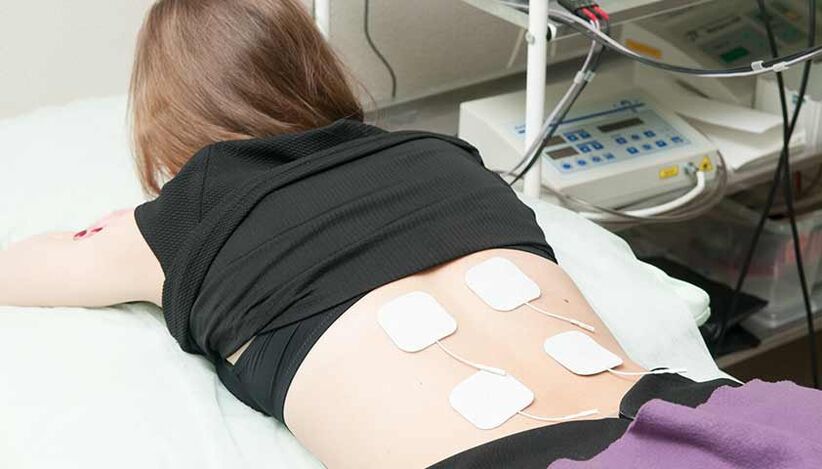
For a comprehensive treatment of enuresis, gymnastics and physiotherapy are used
Psychotherapy
In cases where enuresis developed as a result of stress or neurotic disorder, a psychotherapist prescribes treatment. If a child suffers with an enuree, a good effect is given by family psychotherapy sessions and sedatives that are suitable for a small patient by age. But it is even more important to create a favorable atmosphere for him at home, to show that adults on his side will help him cope with this problem. In no case should you scold and shame the child: it is least to blame for his disease. Pressure and aggression will lead to the fact that the symptoms will not disappear, but will increase. In adolescents and adults, enuresis can also be caused by psychological causes, and in this case they can recommend individual therapy.
Experts do not advise using diapers with an enuree, who hide the unpleasant sensations and level the problem - it is better to protect the bed with adhesive or disposable diaper. There are special devices - enuremated alarm clocks that are attached to pajamas or underwear and respond to the first excreted drops of urine with a sound signal. This gradually accustoms a person to respond to the urge to the body and wake up in time in order to go to the toilet.
Strictly compliance with the regime of the day and regular visits to the restroom plays an equally important role. Before going to bed, it is better to go to the toilet twice: until evening hygiene procedures (washing, brushing, shower) and after them. During the day, you need to drink enough water, but an hour or two before bedtime, it is worth limiting the use of fluids, as well as products that irritate the bladder-this is primarily citrus fruits and juices. Teenagers and adults also need to abandon alcohol, tea, coffee, energy and other drinks containing caffeines.
Forecast and prevention
Summer treatment, compliance with the doctor’s recommendations, the daily routine and, most importantly, the adequate and benevolent reaction of parents and other relatives give good results and allow you to completely get rid of the problem of involuntary night urination.
It is impossible to prevent enuresis, but the risk of its development is reduced if the expectant mother carefully monitors her health during pregnancy: refuses bad habits, leads a healthy lifestyle, observes the daily routine and follows the doctor’s recommendations in order to avoid complications during pregnancy and childbirth.
If the child has already encountered the problem of Enorez, the favorable environment in the family and children's team will help to prevent its repetition. It is worth making every effort to avoid stressful situations that can provoke a relapse of the disease. Adults are recommended to carefully monitor their health and in time to identify and treat infections of the genitourinary system, as well as use condoms during sex to avoid infections transmitted sexually.
Frequent questions
What is enuresis?
Enuresis is involuntary urination in adults and children over 5 years old, which occurs more often twice a month, usually during sleep. This disease in children often occurs independently and does not affect their health. But enuresis seriously affects the child’s self -esteem and his relationship with parents and peers, so many experts recommend treating urine incontinence from 6–7 years old.
Why was an adult described at night in a dream?
Night urinary incontinence can cause infections of the genitourinary system, hormonal failures, trauma of the spine and spinal cord, weakening of the pelvic floor muscles and even severe experiences. This can also happen if a person is in a state of alcohol or narcotic intoxication. If involuntary urination at night occurs regularly, you must consult a doctor who can determine the cause of this delicate problem and prescribe treatment.
How to get rid of Enorez?
The cause of enuresis can be infectious diseases, stress, hormonal malfunctions. In children, night incontinence of urine is often associated with the features of the development of the central nervous system. Treatment is prescribed depending on what exactly caused a night incontinence of urine. Most often combine medicines (synthetic hormones, sedatives, tricyclic antidepressants) and physiotherapy methods - electrophoresis, gymnastics, magnetic and laser therapy. If enuresis is associated with a neurotic disorder or chronic stress, it is recommended to seek help from a therapist.
Which doctor treats enuresis?
Enuresis cause a variety of reasons, therefore, a large number of specialists are engaged in its diagnosis and treatment. Adult patients are recommended to contact the therapist and urologist. If the child’s enuresis, it is necessary to come to the reception to the pediatrician who will conduct an inspection and recommend narrow specialists. This can be a urologist, gynecologist, nephrologist, neurologist, psychotherapist, endocrinologist.

















